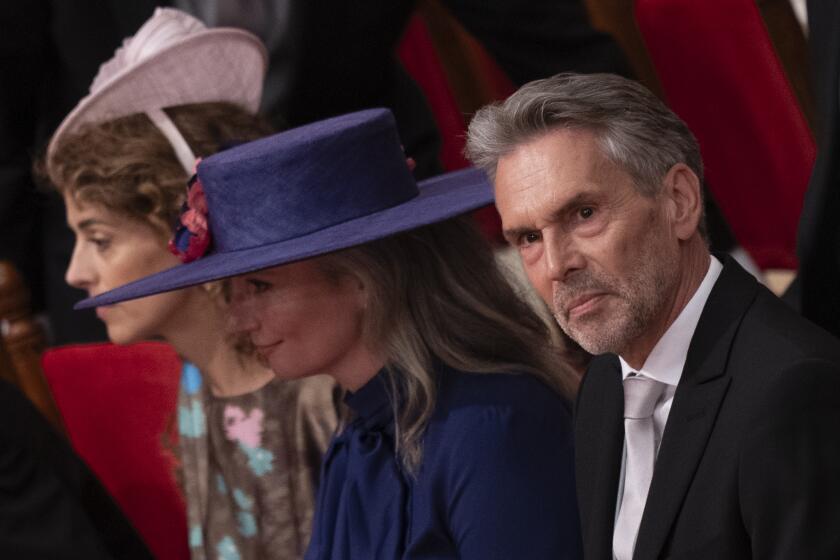Lies, damn lies and statistics
IT WAS THE FACTOID heard ‘round the world. Twenty years ago, Newsweek ran a cover story saying that a 40-year-old single woman was more likely to be killed by a terrorist than to find a husband. Citing the findings of a Harvard-Yale study, the article effectively told a lot of women that they should start adopting cats now.
The figures (like most headline-making numbers, applied to white, college-educated types) were these: A 30-year-old single woman stood a 20% chance of ever getting married. By age 35, her chances dropped to 5%. The terrorist comparison, which wasn’t included in the research, was based on the study’s calculation that a 40-year-old’s chances of marrying were 2.6%.
It’s hard to say what now seems more archaic: the idea that a 30-year-old is over the hill marriage-wise, or the assumption that terrorism is an unlikely event. In any case, this wasn’t exactly “Chicken Soup for the Shoulder-Padded-Blazer Wearer’s Soul.”
As it turns out, the figures were wrong. In a striking mea culpa, the June 5 issue of Newsweek recants its alarmist interpretation of already spurious statistics, explaining that the research looked at people in their 20s and 30s, but the analysis was based on trends from older generations, which overwhelmingly married before age 30. It also points out that census data gathered shortly after the Harvard-Yale findings put a 40-year-old woman’s chances at marrying at a cushy 17% to 23%.
Oh, and as for the terrorist line, apparently it originated in an internal memo and somehow ended up in the story as a “funny aside” that, according to Eloise Saldholz, who wrote the story, “was never meant to be taken literally.”
You know how many women it takes to get a joke: one to say “that’s not funny” and several million to turn a funny aside into a talk-show-dominating, self-help-book-spawning “cultural conversation.”
Since at least the 1970s, we’ve surfed the waves of any number of media-generated declarations about what women want, what we don’t want, what we’re capable of and, inevitably, what it’s like to figure out that we’re not capable of all that stuff after all, which doesn’t matter because it turns out we didn’t want it anyway.
Like hem lengths, scare tactics wrought by questionably massaged statistics change with the seasons. After the difficulty of marrying came the challenge of getting pregnant later in life. The panic du jour, of course, is the apparent near-impossibility of effectively raising kids while maintaining a career. Somehow this topic registers as sexier than what’s happening in, say, Iraq or Darfur. In our more myopic moments, we seem to believe that people in refugee camps aren’t nearly as stressed out as your average law school grad with a Baby Bjorn.
You have to wonder how we found ourselves in this colicky state, especially considering that 20 years ago we were told we wouldn’t get married, and 10 years ago we were sent a memo informing us we’d likely be reduced to barren wretches if we weren’t knocked up by 35.
Newsweek allows that the controversy can be seen “as a cautionary tale of what can happen when the media simplify complicated academic work.” That sort of contrition is admirable (if belated), but it’s unlikely to stem our love affair with grandiose sociological pronouncements. From recent chatter about the pregnant Elizabeth Vargas’ decision to leave her post anchoring ABC’s “World News Tonight” because, as she told the Washington Post, “for now, for this year, I need to be a good mother,” you’d think American women feared an impending Taliban takeover.
Whether or not Vargas’ move is actually the result of corporate pressure because of low ratings, as some feminists and industry insiders suspect, the bigger story isn’t so much women’s fascination with Vargas’ choice but the media’s insistence that we’re fascinated.
Are we really that interested? On one level, they’ve got us pegged. It’s human nature to be mesmerized by our own lives and to see our personal struggles as part of a larger trend that’s guided by forces we can’t control. But the Newsweek blunder shows us that statistics sometimes provide more entertainment value than sociological substance because they allow us to forget the role of individual choice.
Just as most of us, if we want to, will eventually marry in spite of the stormy demographic forecasts we grew up with, most women with careers and kids will figure out how to do both without screwing up too badly. And it won’t be because the media declared it safe to go back in the water. It will be because we do what free human beings do, which is make personal choices based on personal circumstances and desires.
As Vargas herself said: “I would urge people not to draw conclusions about the ability of a woman or a mother to do this job.” Let’s just hope Newsweek doesn’t get its hands on her.
More to Read
Sign up for Essential California
The most important California stories and recommendations in your inbox every morning.
You may occasionally receive promotional content from the Los Angeles Times.











